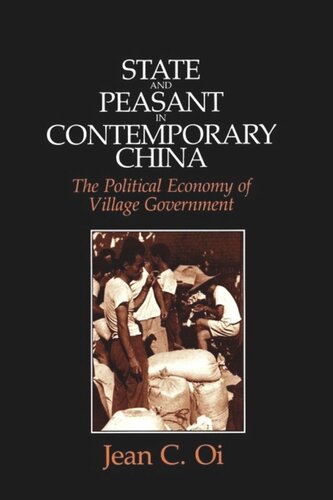

Most ebook files are in PDF format, so you can easily read them using various software such as Foxit Reader or directly on the Google Chrome browser.
Some ebook files are released by publishers in other formats such as .awz, .mobi, .epub, .fb2, etc. You may need to install specific software to read these formats on mobile/PC, such as Calibre.
Please read the tutorial at this link: https://ebookbell.com/faq
We offer FREE conversion to the popular formats you request; however, this may take some time. Therefore, right after payment, please email us, and we will try to provide the service as quickly as possible.
For some exceptional file formats or broken links (if any), please refrain from opening any disputes. Instead, email us first, and we will try to assist within a maximum of 6 hours.
EbookBell Team

0.0
0 reviewsThis is a study of peasant-state relations and village politics as they have evolved in response to the state's attempts to control the division of the harvest and extract the state-defined surplus. To provide the reader with a clearer sense of the evolution of peasant-state relations over almost a forty-year period and to highlight the dramatic changes that have taken place since 1978,1 have divided my analysis into two parts: Chapters 2 through 7 are on Maoist China, and chapters 8 and 9 are on post-Mao China. The first part examines the state's grain policies and patterns of local politics that emerged during the highly collectivized Maoist period, when the state closed free grain markets and established the system of unified purchase and sales (tonggou tongxiao). The second part describes the new methods for the production and division of the harvest after 1978, when the government decollectivized agriculture and abolished its unified procurement program.